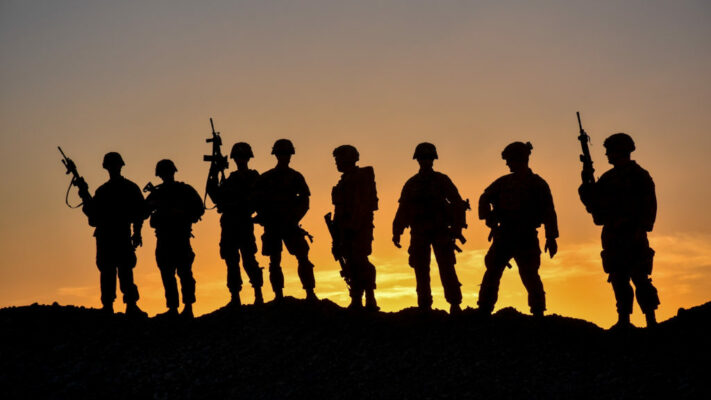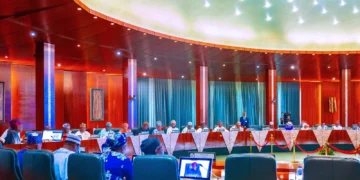When President Bola Tinubu promised on Wednesday that the sacrifices of our fallen heroes won’t be in vain, I couldn’t help but wonder: How many times have we heard these same words from different lips at Armed Forces Remembrance Day celebrations.
To be sure, the President’s sentiments at this year’s commemoration were noble. Speaking from Abu Dhabi (yes, while Vice President Shettima represented him at the actual ceremony), he called for unity, peace, and collective nation-building. Beautiful words, indeed. But haven’t we heard them all before?
Year after year, our leaders gather at the National Arcade, lay wreaths, release doves, and make grand pronouncements about honouring them for their sacrifices. Yet, what changes for the families of our fallen heroes? What improves for our serving military personnel who continue to battle insurgency, banditry, and other security challenges across the country.
I think we need to have an honest conversation about what it truly means to ensure their sacrifices aren’t “in vain.” Is it enough to gather once a year, adorned in fine clothes, to lay wreaths and make speeches? What about the other 364 days of the year when veterans struggle with daily survival?
Let’s talk about the welfare of our veterans. Let’s discuss the pension delays that many military retirees face. Let’s address the inadequate support for families who lost their breadwinners in service to our nation.
These are the real ways to honour sacrifices, not through annual rhetorical flourishes that fade faster than the ink they’re written with.
The President called for Nigerians to become “ambassadors of peace.” Admirable, but peace isn’t built on words alone. It’s built on justice, on fair treatment of our security personnel, on adequate equipment and support for those currently serving, and on proper care for the families of those who paid the ultimate price.
The ceremony itself was well-attended, with an impressive array of dignitaries – from the Senate President to Service Chiefs, from the Speaker’s representative to the diplomatic corps. But I couldn’t help but think about the widows of fallen soldiers who struggle to pay their children’s school fees, or the veterans who can barely afford medical care.
The contrast between the pomp of the ceremony and the reality of veterans’ lives is stark and troubling.
Remember, this isn’t just about commemorating those who fell in the World Wars or the Civil War. We’re losing brave men and women today in the fight against insurgency, in peacekeeping missions, in various security operations across the country. Their sacrifices are current, their families’ pain is fresh, and their needs are immediate and pressing.
The switch of our remembrance day from November 11th (when other Commonwealth nations mark it) to January 15th was meant to give it a uniquely Nigerian character. But have we really made it meaningful beyond the ceremonial? Have we developed comprehensive support systems that reflect our unique challenges and needs?
When we talk about ensuring sacrifices aren’t in vain, we should be discussing concrete actions: How are we improving the operational capacity of our armed forces? What new policies are we implementing to better care for veterans? How are we supporting the education of children left behind by fallen heroes? What about psychological support for returning soldiers and grieving families?
Look at countries like Israel, the United States, or even our neighbouring Ghana. They’ve developed robust systems for veteran care, from healthcare to housing support, from educational benefits to employment programmes. Meanwhile, we’re still struggling with basic pension payments and medical care for our veterans.
The presence of all the top government functionaries at the ceremony – from the Chief of Defence Staff, Gen Christopher Musa, to the Inspector-General of Police, Kayode Igbetokun should have been an opportunity for meaningful dialogue about these issues. Instead, it became another photo opportunity, another chance to make promises that history suggests might never be fulfilled.
Don’t get me wrong – ceremonies and remembrances have their place. They help us pause and reflect, they remind us of our collective debt to those who serve. But they shouldn’t be substitutes for actual action, for real policy changes, for meaningful improvements in the lives of our service members and their families.
If President Tinubu truly wants to ensure these sacrifices aren’t in vain, he needs to move beyond promises. We need comprehensive reform of veteran care, better support systems for military families, improved conditions for serving personnel, and transparent management of resources meant for these purposes.
Until then, these annual promises risk becoming just another entry in our long catalogue of unfulfilled government pledges. Our fallen heroes – and those still serving – deserve better than annual ceremonies and empty words. They deserve action, commitment, and genuine change. Anything less is not just a failure of governance; it’s a betrayal of their sacrifice.





